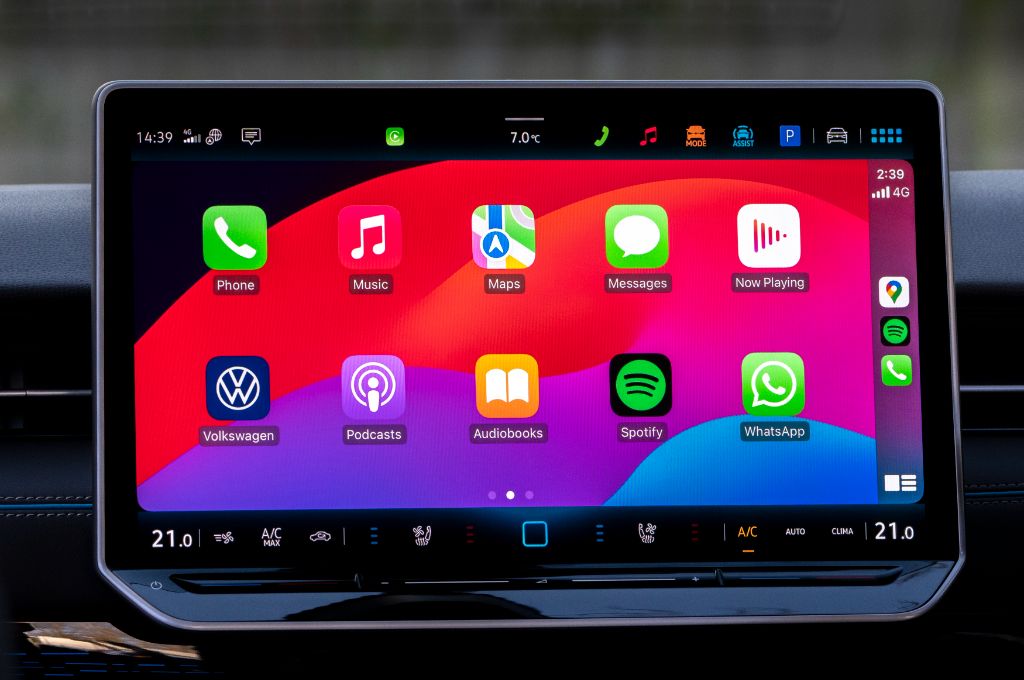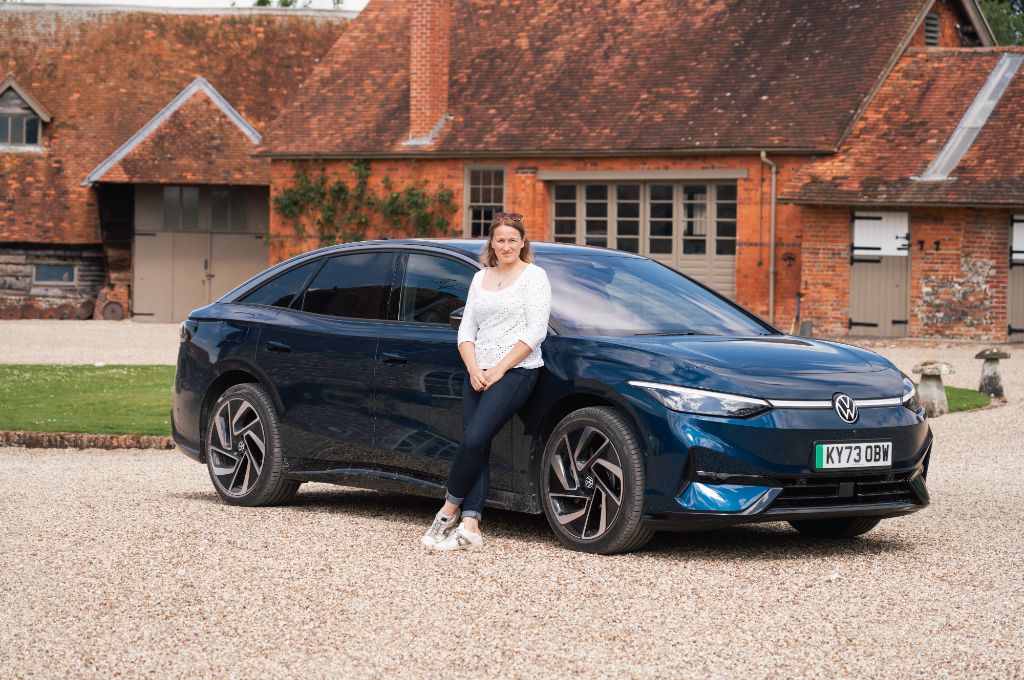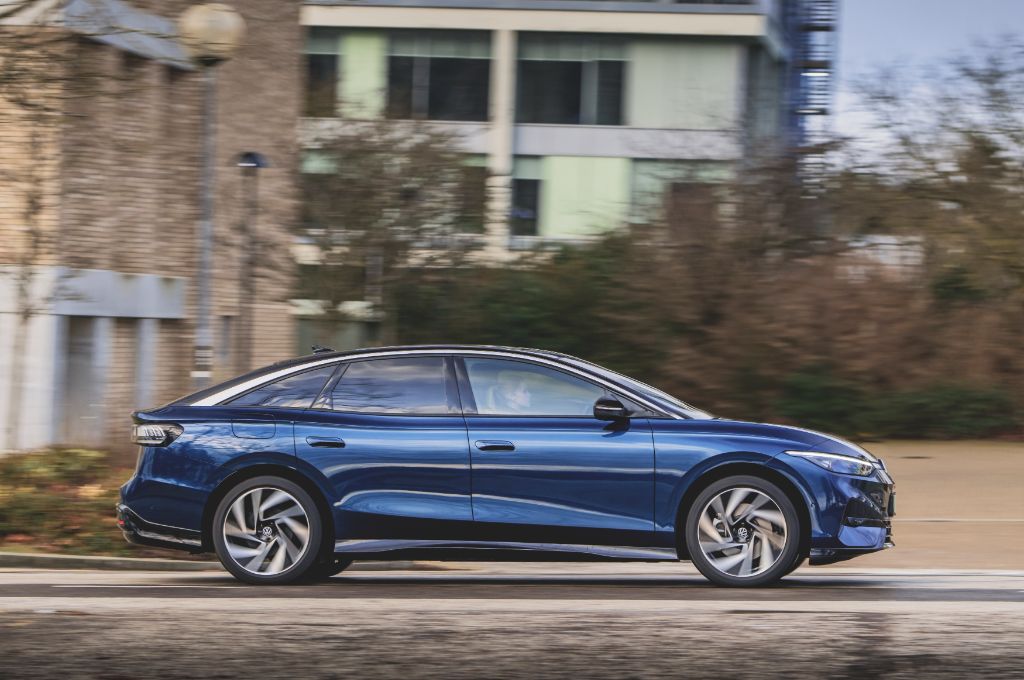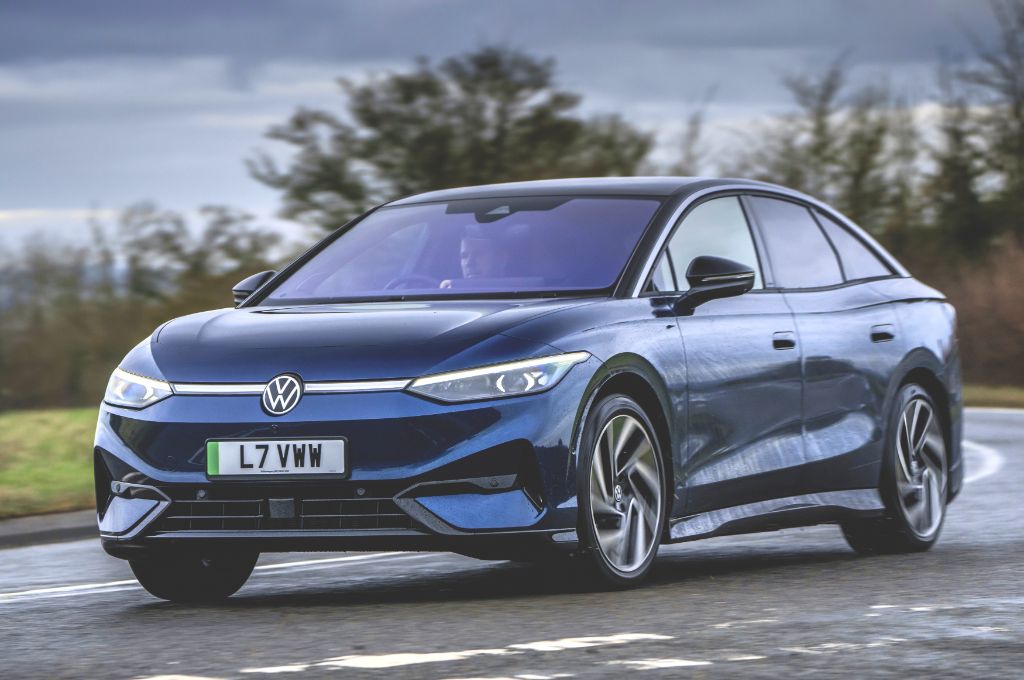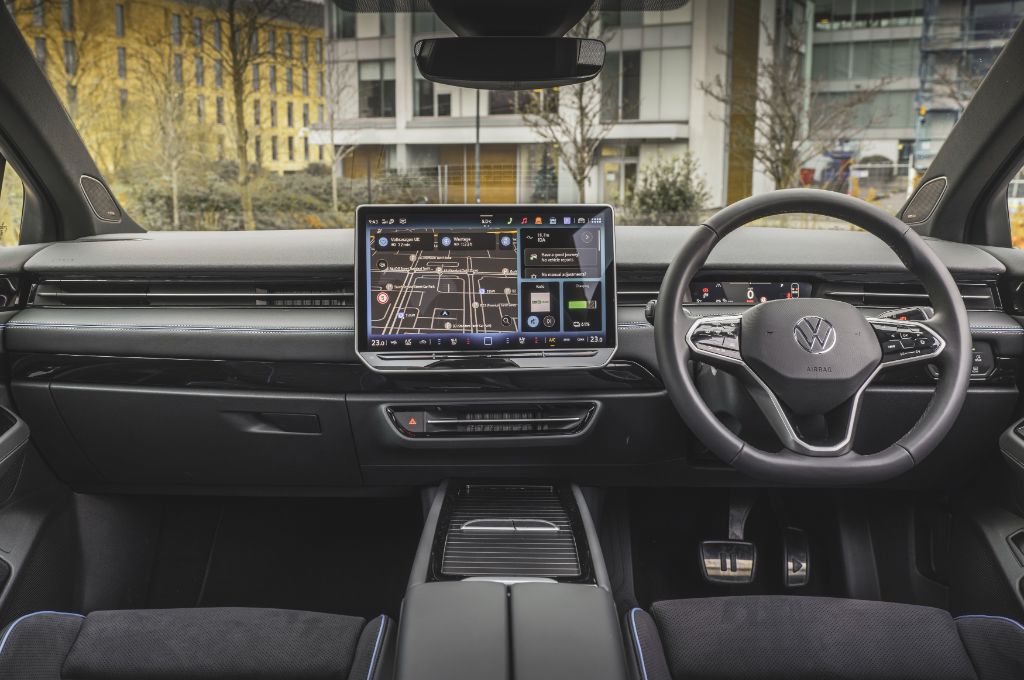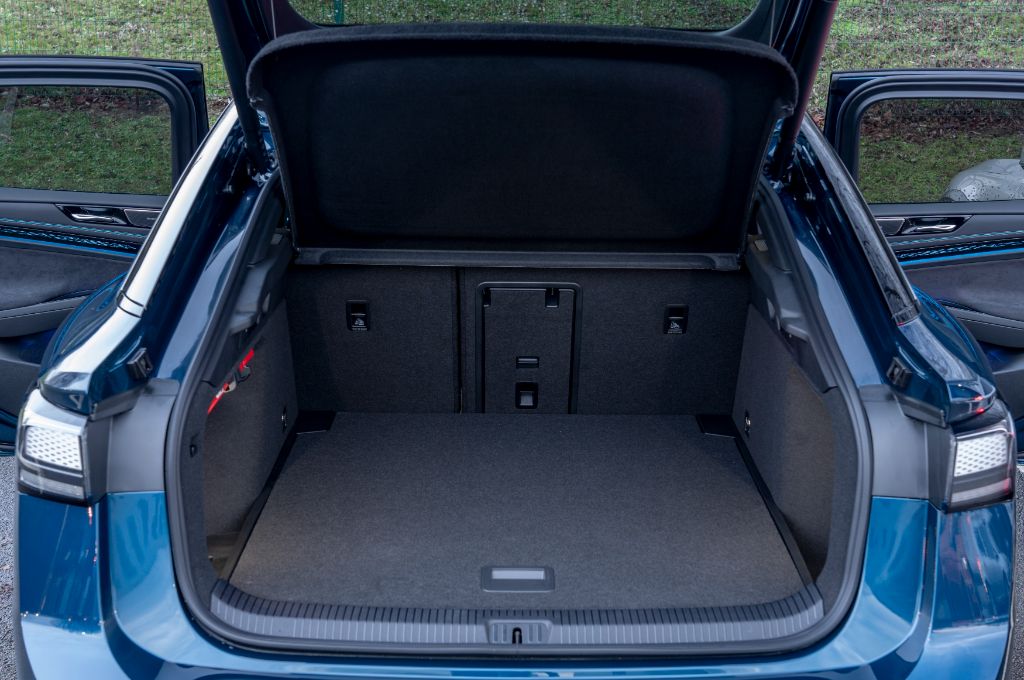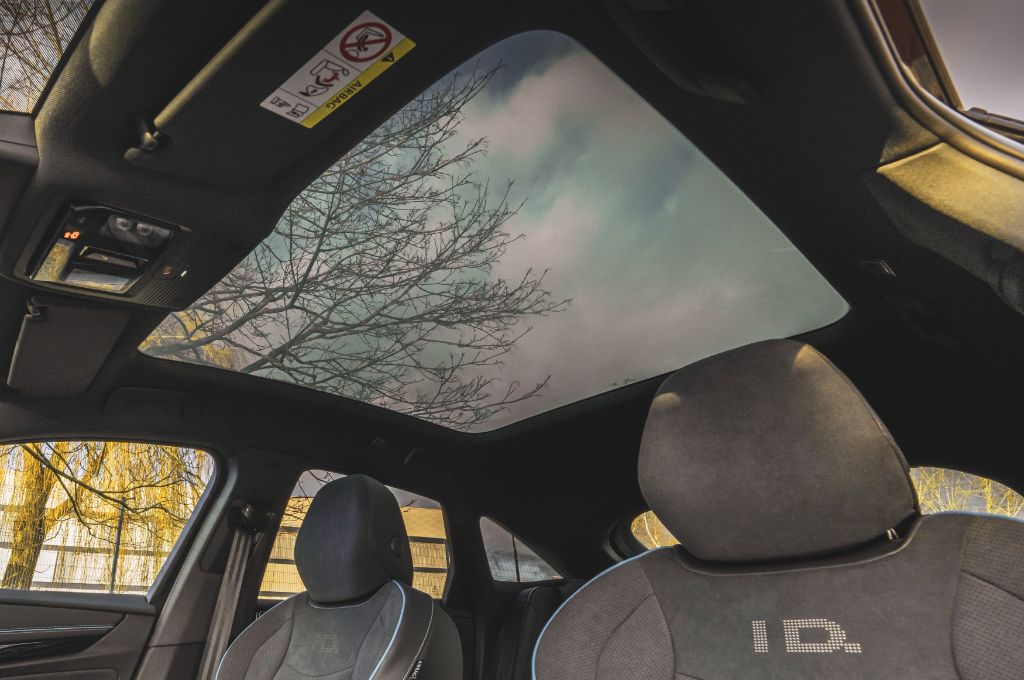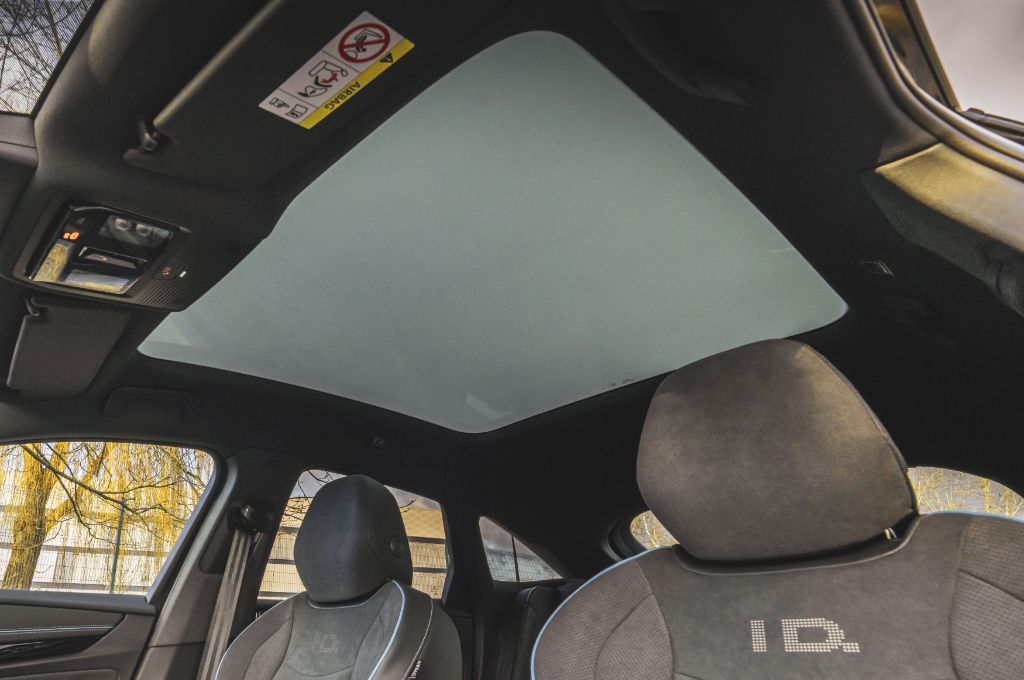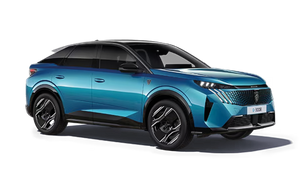The costs
I haven’t had any problems with the ID.7 to fix – not even any touchscreen gremlins - so there haven't been any costs on that front, nor have I needed to test the dealer service or the three-year, 60,000 mile warranty. Blimey, that warranty may be 'industry standard' but it still seems underwhelming next to the warranties you get with Kia, Hyundai, MG and Peugeot, doesn't it?!
Anyway, that efficiency that I was talking about hasn’t really dropped below 4.0m/kWh. On my home tariff, that means that I’m paying 6p per mile if I charge in daytime, although I use my overnight rate of 8.5p per kWh most of the time, which means that I’m pay just over 2p per mile: A bargain, I'd say.
Mind you, the ID.7 is hardly cheap. Yes, it’s a lot bigger and roomier than a Tesla Model 3, but you will get the Tesla for usefully less – and it’s not hard to see why a lot of buyers will choose to do that.
Mind you, VW is offering a chunky deposit contribution to PCP finance buyers at the moment, and I managed to get the ID.7 – in exactly the spec of our test car, with the options and all – down to £560 per month after an £8,400 customer deposit (or part-ex). You can get it down to £500 per month on the same four-year contract, if you skip the extras. That’s still a lot of money, but it’s very competitive with what you’ll be paying for the Ioniq 6 or Tesla Model 3 – and it’s a lot less than the Mercedes EQE will set you back (and I’d have the VW over the Mercedes for its better headroom in the back, for a start).
The three year warranty feels stingy, mind, with both Tesla and Hyundai offering longer warranties. I do think that VW would do well to remedy that…
The Verdict
You’ll be unsurprised to hear that I heartily recommend the VW ID.7. I’ve so enjoyed my time with it. For what seems like a slightly boring executive car, I genuinely found it quite charming. It’s just so capable, and cosseting, and it made my fairly high-mileage life feel like a piece of cake. On the odd occasion that I did need to rapid charge, it normally peaked at around 150kW, but I never needed a full top-up so that was more than good enough and generally meant a brief, ten- or fifteen minute stop got me home no bother. I didn’t get to do any continent-crossing journeys, granted, but over 1,000 miles per month is more than most, and even this smaller battery model made very light work of it with the convenience of a home charger to rely on.
More than just being comfortable and efficient, it was a totally effortless family car. Masses of room, a huge boot, lovely interior that wipes easily and wears well. And I really liked the fact that it just felt different, and isn't an SUV! You don’t see many ID.7s around, which is a shame, and yet that rarity factor plays into it for me.
Truthfully, the ID.7 is shaping up to be a bit forgotten in its class, but it shouldn’t be, because it’s bloody marvellous. I’d buy one tomorrow, if I could.









